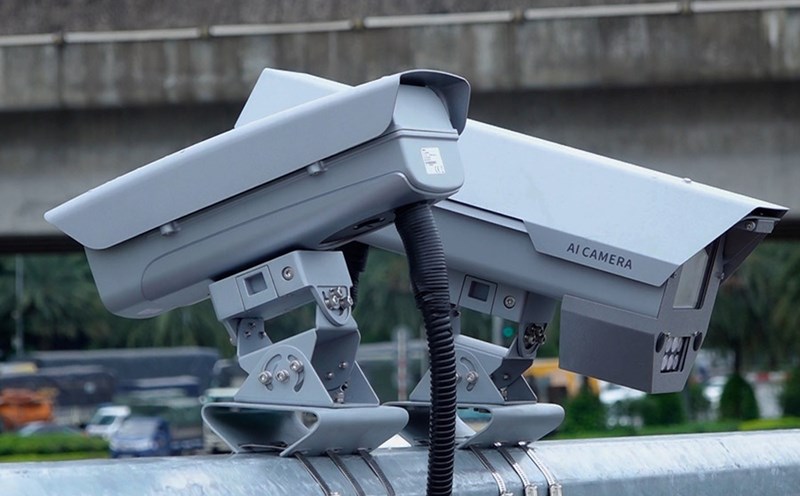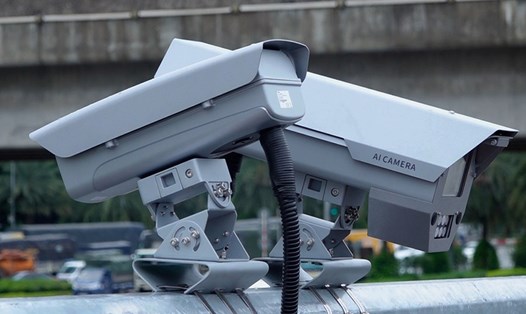Monitoring results from the artificial intelligence (AI) camera system being piloted on the Noi Bai - Lao Cai expressway and some intersections in Hanoi's inner city in recent days show that the awareness of compliance of traffic participants is changing positively.
According to the AI camera system installed at km20 of the Noi Bai - Lao Cai expressway, the behavior of not tying up safety belts on the above expressway tends to decrease, from 20 cases (from 12:00 on November 5, 2025 to 12:00 on November 6, 2025) to only 8 cases (from 12:00 on November 7, 2025 to 12:00 on November 8, 2025).
For the past three consecutive days, the system has not detected any cases of using a phone while driving.
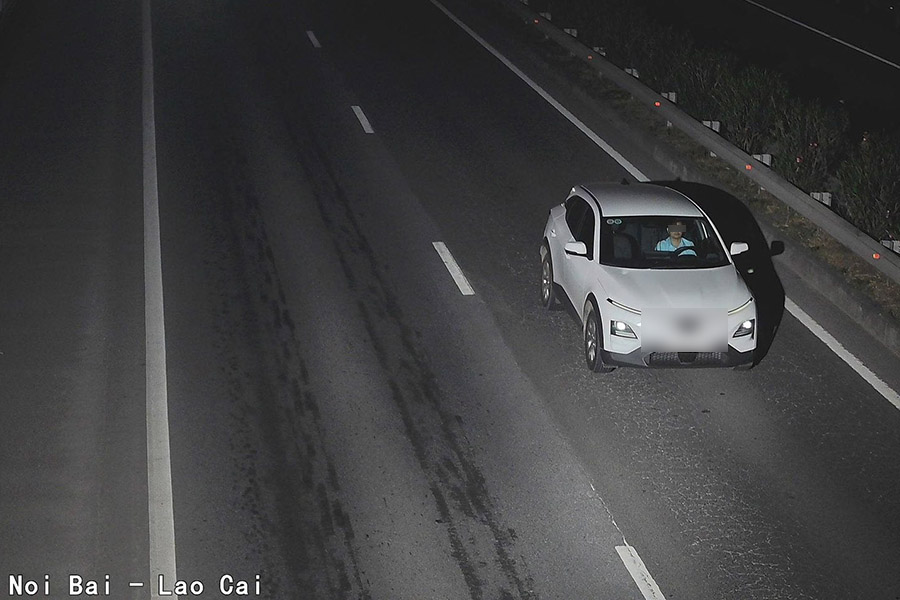
In the inner city area, at the Pham Van Bach - Hoang Quan Chi intersection (Cau Giay ward), popular behaviors such as running red lights or not wearing helmets have also recorded a sharp decrease.
If in the period from 12:00 on November 5, 2025 to 12:00 on November 6, 2025, there were up to 110 cases of running red lights recorded, then in the period from 12:00 on November 7, 2025 to 12:00 on November 8, 2025, this number will be only 8.
The behavior of not wearing a helmet has also decreased steadily over time, from 36 to 24 cases.
According to the Traffic Police Department, all violations have been transferred to the Hanoi City Police and functional units to carry out procedures to handle violations.
On Le Van Luong Street, the behavior of going in the wrong lane almost no longer appears. In the last two days, the camera system has not detected any violations.
According to the assessment of the authorities, the above results show that smart monitoring technology is gradually contributing to changing the awareness of traffic participants.
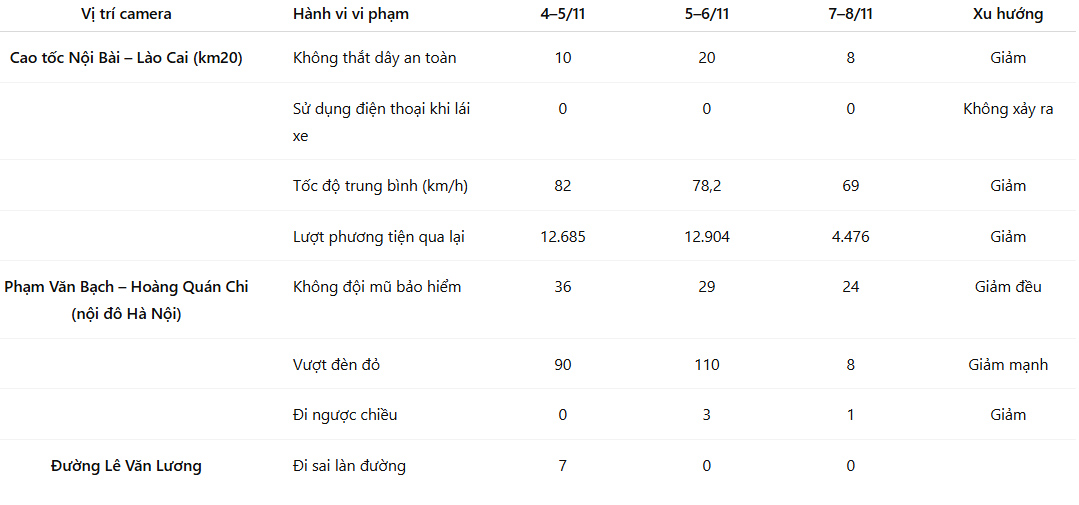
In Hanoi, it is expected that by December 2025, the City Police will also put 1,873 AI cameras into operation.
Compared to the regular surveillance camera system, the AI camera has the ability to analyze and process images right on the device, helping to quickly and accurately detect violations of traffic order and safety as well as situations related to security and order in the area.
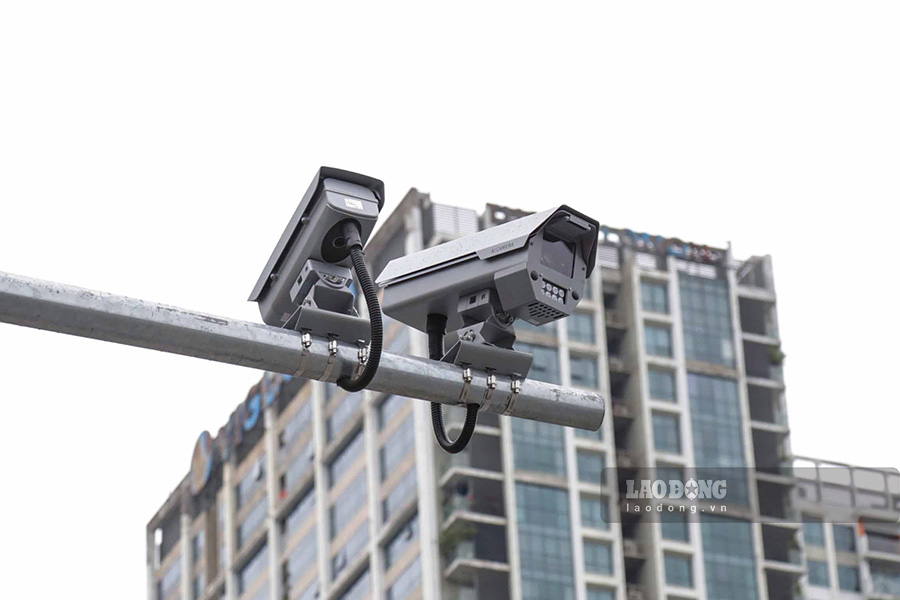
"When put into operation, the system will effectively support officers and soldiers in the work of operating, supervising and handling violations. Accordingly, AI cameras can automatically measure vehicle traffic volume, connect and adjust the signal light cycle in real time to reduce congestion.
Putting this system into operation is an important step forward in the digital transformation roadmap of the capital's traffic police force", said Lieutenant Colonel Dao Viet Long - Deputy Head of Hanoi Traffic Police Department.


